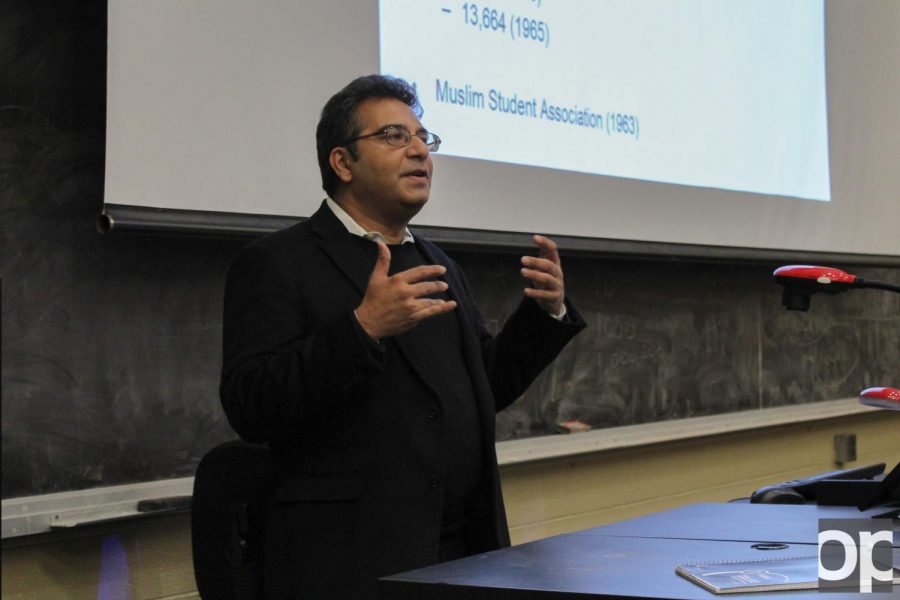Muslims In America: The Canary In The Coal Mine
Islamophobia is seemingly a modern American issue, but the roots of this hatred and fear highlight a larger flaw. Professor Saeed Khan discussed Islamophobia on Feb. 1 in O’Dowd Hall, introducing the point that Islamophobia is a threat to all.
Khan is currently in the Department of History and a lecturer in the Department of Near East & Asian Studies at Wayne State University.
“You may have encountered Dr. Khan via the mass media,” said Alan Epstein, a special lecturer at Oakland University. “He has contributed to C-SPAN, NPR, Voice of America and the National Press Club. He also is a consultant for Middle Eastern affairs on BBC. He is, surely, an intellectual force of nature.”
Back when there were coal mines, miners used to put canaries in cages down the mine shaft to test the gases in the shaft. It’s also used as a metaphor for being a barometer or a test for not just a coal mine.
“In many ways, Muslim Americans have become the preverbal canary in the coal mine of an evolving American Society,” Khan said. “The treatment of Muslim Americans today in this time, not compared to other demographic groups who were certainly subject to some difficult treatment in America’s history, is really showing the direction and the trajectory of the United States today and how various demographic groups, individually as well as collectively, are going to be treated.”
In August of 2010, Time magazine featured the question “Is America Islamophobic?” on the cover. This cover is historic for several reasons, one being that it is the first time a major media outlet had actually used the word Islamophobia or its derivative in the U.S.
2010 also marked a time where Islamophobia was at its highest, even in comparison to its previous highpoint in 2001 after the Sept. 11, 2001 terrorist attacks. During this time was a flurry of activity trying at the state legislative level to pass laws which would ban Sharia law. This tactic is not new. In the 1870s, the Blaine Amendments were proposed to target “problematic” Catholics.
“Now, some of these same amendments are being used against people of other faiths,” Khan said. “You see the language, the legal construction of these pieces of legislation, having an awful lot in common.”
Multiple legislative efforts are being seen to inhibit rights for particular groups including voter laws, immigration laws, reproductive rights and access, same sex marriage and labor issues.
“At a rate of 80 percent, a legislator at a state level who was trying to pass an anti-sharia law was 80 percent likely to try to pass a law in one of those other five categories,” Khan said. “This showed a confirmation that those who were targeting Muslims and anti-sharia legislation weren’t just targeting Muslims.”
Islamophobia is not a disease unto itself, but a symptom of a bigger disease that is plaguing America at this time, according to Khan.
“Muslims have been a part of a changing America landscape for centuries,” he said. “Far from being a pernicious, invasive, alien or foreign entity, we find then that these issues are code for a deeper and more racial, not religion based, discourse about America.”







